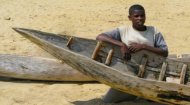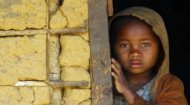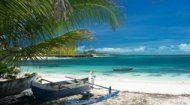|
Today 6,268,000 pupils are enrolled in primary and secondary education. Of these pupils, about 4,734,000 (76%) are enrolled in primary education. Education itself is divided into primary education (6 - 11 yrs), and secondary education sub divided into junior (12 - 15yrs) and senior (16 - 18 yrs.) These figures have seen a rise in the youth literacy rate for Madagascar from 65.07% in 2015 to 74.80% on the latest figures available.
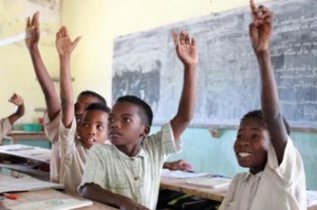 Furthermore the most recent data indicates that 44% of all primary school aged girls are out of education reflecting a cultural attitude that females should remain at home focussing on domestic tasks and childcare. As one eight year in Madagascar old stated about his education "I like it a lot. I learn English, French, and other things. Most children in my country go to primary school, but only a small number ever go to high school." Furthermore the most recent data indicates that 44% of all primary school aged girls are out of education reflecting a cultural attitude that females should remain at home focussing on domestic tasks and childcare. As one eight year in Madagascar old stated about his education "I like it a lot. I learn English, French, and other things. Most children in my country go to primary school, but only a small number ever go to high school."
In fact just 2.2% go on to tertiary education, where there is only capacity for 26,000 students in any event.) The average school day in Madagascar runs from 8am - 1pm (with the academic year running from October to October) however often children only attend for a half day when a school doesn't have the capacity to hold all pupils at once.
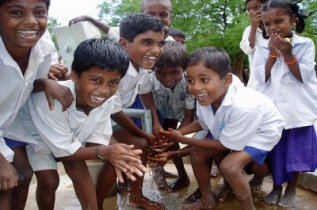 The curriculum (where only 20 per cent of teachers are civil servants and 97 per cent do not have a professional teaching diploma) at the junior stage of secondary school covers mathematics, natural science, Malagasy language, civics and religion, French and English together with history, geography, arts and physical education. At the end of this period the children, who have normally been taught in classes of around 40 students per teacher (compared with a world average in 2018 based on 87 countries of 24.13 students per teacher), are awarded a certificate.
The curriculum (where only 20 per cent of teachers are civil servants and 97 per cent do not have a professional teaching diploma) at the junior stage of secondary school covers mathematics, natural science, Malagasy language, civics and religion, French and English together with history, geography, arts and physical education. At the end of this period the children, who have normally been taught in classes of around 40 students per teacher (compared with a world average in 2018 based on 87 countries of 24.13 students per teacher), are awarded a certificate.
Those who remain in senior education graduate with a diploma, the baccalaureat having studied advanced mathematics, natural science, basic technology, French, Malagache ~ the official national language ~ history, geography, civics, religion and physical education.
Madagascar education is only free and compulsory between the ages of 6 and 13 and recent political instability has had a negative impact not least sanctions against the government; creating a funding shortfall. The quality of education in Madagascar is further hampered by a lack of clean water.
Many schools lack running water, sanitation, and hygiene facilities. As a result many pupils frequently fall sick and don't attend classes impacting on their already disadvantaged education. Children are encouraged to bring bottles of water to school to drink and clean themselves (and that costs). One nine year old school boy who regularly suffers from diarrhoea stated "I draw from a river close to our house. I drink it when I am thirsty, even if it is not clean."
Today, organisations such as UNICEF are working with the government in Madagascar to develop a New Education Sector Plan which will involve the training of 43,000 teachers and provide assistance with education to 10,000 schools as well as offering catch-up classes to about 100,000 students. The photograph (above) was taken at a primary school in Antananarivo, Madagascar in 1908 during the colonial period when education in Madagascar was seen as a way of creating a productive workforce for the country's colonial masters. The two videos opposite give further insights into the Madagascar education system.
|

 Furthermore the most recent data indicates that 44% of all primary school aged girls are out of education reflecting a cultural attitude that females should remain at home focussing on domestic tasks and childcare. As one eight year in Madagascar old stated about his education "I like it a lot. I learn English, French, and other things. Most children in my country go to primary school, but only a small number ever go to high school."
Furthermore the most recent data indicates that 44% of all primary school aged girls are out of education reflecting a cultural attitude that females should remain at home focussing on domestic tasks and childcare. As one eight year in Madagascar old stated about his education "I like it a lot. I learn English, French, and other things. Most children in my country go to primary school, but only a small number ever go to high school."  The curriculum (where only 20 per cent of teachers are civil servants and 97 per cent do not have a professional teaching diploma) at the junior stage of secondary school covers mathematics, natural science, Malagasy language, civics and religion, French and English together with history, geography, arts and physical education. At the end of this period the children, who have normally been taught in classes of around 40 students per teacher (compared with a world average in 2018 based on 87 countries of 24.13 students per teacher), are awarded a certificate.
The curriculum (where only 20 per cent of teachers are civil servants and 97 per cent do not have a professional teaching diploma) at the junior stage of secondary school covers mathematics, natural science, Malagasy language, civics and religion, French and English together with history, geography, arts and physical education. At the end of this period the children, who have normally been taught in classes of around 40 students per teacher (compared with a world average in 2018 based on 87 countries of 24.13 students per teacher), are awarded a certificate.